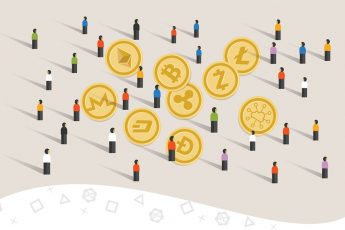
Innovative Applications of Blockchain Beyond Cryptocurrency
The first thing that typically springs to mind when most people hear “blockchain” is frequently bitcoin. But blockchain technology has far more potential uses than merely for money transfers. A wide range of sectors are looking at the creative benefits of blockchain to boost security and operational efficiency. This post examines some of the most cutting-edge blockchains uses outside of cryptocurrencies.
Let’s first review what blockchain technology is in reality. Blockchain is a decentralised digital ledger that records transactions among a network of computers at its most fundamental level. Each “block” has a unique code and encrypted and timestamped transaction data. A block added to the blockchain cannot be removed, guaranteeing that data is secure and unchangeable.
Applications of Blockchain Besides Cryptocurrency
Now that we have a fundamental knowledge of blockchain let’s look at various applications outside of cryptocurrencies:
- Management of the Supply Chain
Supply chain management is one of blockchain technology’s most exciting possible applications. Businesses may improve supply chain visibility, openness, and accountability by using blockchain to track and trace commodities across the supply chain. For instance, Walmart, Nestlé, and Carrefour are all utilising blockchain to track the food supply chains, enabling them to discover and take potentially dangerous products off their shelves rapidly. Another illustration of how blockchain might be utilised in this sector to enhance traceability is IBM’s Food Trust Network. - Medical Care
The healthcare sector is another one that blockchain can help. The blockchain can securely store electronic health records (EHRs), creating a decentralised, unchangeable form of patient data. One business using blockchain to build a safe EHR platform is MedicalChain. Blockchain can be used in clinical trials to increase data transparency and integrity. As an illustration, Boehringer Ingelheim has secured its clinical trial data using blockchain technology. - Voting Procedures
Additionally, blockchain technology can make voting processes more transparent and safe. The security and accuracy of elections can be improved by using blockchain, which offers a decentralised and transparent voting data ledger. A blockchain-based voting system for military personnel underwent a successful pilot test in West Virginia in 2018 that may be adopted more widely in the future. - Property
Real estate is a different sector that could be revolutionised by blockchain. It is possible to lessen the need for intermediaries like solicitors and title companies by using blockchain to construct a ledger of property titles. Smart contracts can also be used to automate real estate transactions, which lowers the risk of fraud and increases efficiency. While Propy is constructing a worldwide real estate marketplace utilising blockchain and smart contracts, Bitfury and the Republic of Georgia are collaborating to develop a blockchain-based land title registry system. - Identity Checking
Finally, identity verification using blockchain technology can be adequate. Blockchain has the potential to improve security and lower the possibility of identity theft by offering a decentralised identity verification method. One business leveraging blockchain to provide safe, decentralised identity verification is Civic.
Conclusion
Beyond its usage in cryptocurrencies, blockchain technology has a wide range of potential advantages. Blockchain technology can revolutionise various industries, including supply chain management, healthcare data integrity, secure voting systems, and real estate. The adoption of blockchain has its challenges, including scalability, legal and regulatory hurdles, and security worries. We may anticipate seeing even more cutting-edge blockchain applications in the years as the technology progresses.


 1 BTC =
1 BTC =
 97387.4700 USD
97387.4700 USD
 29.0900000 ETH
29.0900000 ETH
 97370.3300 USDC
97370.3300 USDC
 86281.4300 XRP
86281.4300 XRP
 92398.6900 EUR
92398.6900 EUR
 136111.1700 CAD
136111.1700 CAD
 148954.3400 AUD
148954.3400 AUD
Leave a Comment